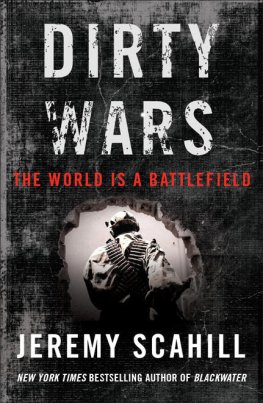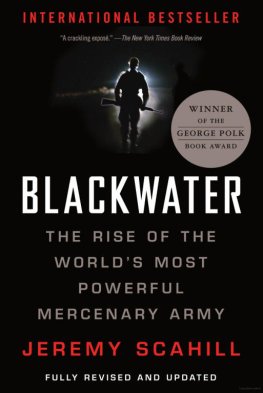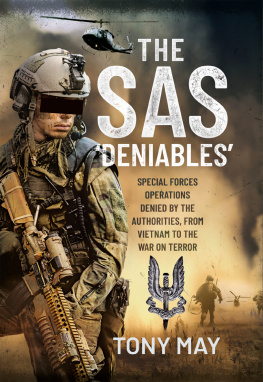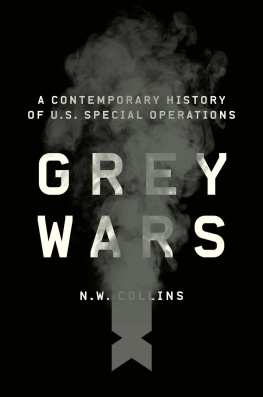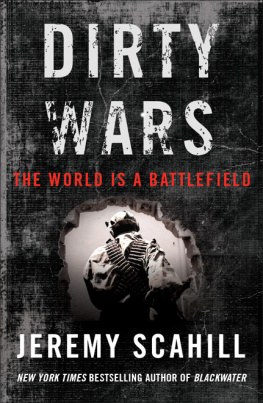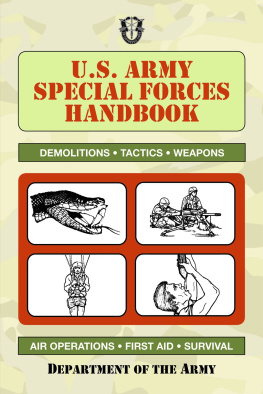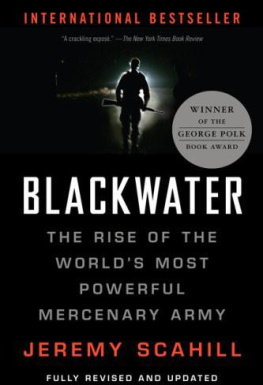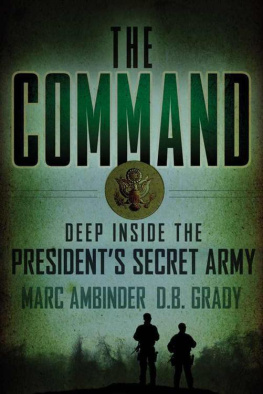Jeremy Scahill
DIRTY WARS
The World Is a Battlefield
FOR JOURNALISTS
those imprisoned for doing their jobs and those who have died in pursuit of the truth.
It is forbidden to kill; therefore all murderers are punished unless they kill in large numbers and to the sound of trumpets.
VOLTAIRE






THIS IS A STORY about how the United States came to embrace assassination as a central part of its national security policy. It is also a story about the consequences of that decision for people in scores of countries across the globe and for the future of American democracy. Although the 9/11 attacks dramatically altered the way the United States conducts its foreign policy, the roots of this story far predate the day the Twin Towers fell. In the post-9/11 world, there is also a tendency to see US foreign policy through a partisan lens that, on the one hand, suggests that President George W. Bushs invasion of Iraq was an utter disaster that led the nation into a mentality that it was in a global war and, on the other, that President Barack Obama was left to clean up the mess. In the eyes of many conservatives, President Obama has been weak in confronting terrorism. In the eyes of many liberals, he has waged a smarter war. The realities, however, are far more nuanced.
This book tells the story of the expansion of covert US wars, the abuse of executive privilege and state secrets, the embrace of unaccountable elite military units that answer only to the White House. Dirty Wars also reveals the continuity of a mindset that the world is a battlefield from Republican to Democratic administrations.
The story begins with a brief history of the US approach to terrorism and assassination prior to 9/11. From there, I weave in and out of several stories, spanning the course of Bushs early days in office and going into Obamas second term. We meet al Qaeda figures in Yemen, US-backed warlords in Somalia, CIA spies in Pakistan and Special Operations commandos tasked with hunting down those people deemed to be enemies of America. We meet the men who run the most secretive operations for the military and the CIA, and we hear the stories of insiders who have spent their lives in the shadows, some of whom spoke to me only on condition that their identity never be revealed.
The world now knows SEAL Team 6 and the Joint Special Operations Command as the units that killed Osama bin Laden. This book will reveal previously undisclosed or little-known missions conducted by these very forces that will never be discussed by those at the helm of power in the United States or immortalized in Hollywood films. I dig deep into the life of Anwar al Awlaki, the first US citizen known to be targeted for assassination by his own governmentdespite never having been charged with a crime. We also hear from those who are caught in the middlethe civilians who face drone bombings and acts of terrorism. We enter the home of Afghan civilians whose lives were destroyed by a Special Ops night raid gone wrong, transforming them from US allies to would-be suicide bombers.
Some of the stories in this book may, at first, seem to be disconnected, from people worlds apart. But taken together, they reveal a haunting vision of what our future holds in a world gripped by ever-expanding dirty wars.
JEREMY SCAHILL

The young teenager sat outside with his cousins as they gathered for a barbecue. He wore his hair long and messy. His mother and grandparents had repeatedly urged him to cut it. But the boy believed it had become his trademark look and he liked it. A few weeks earlier, he had run away from home, but not in some act of teenage rebellion. He was on a mission. In the note he left for his mother before he snuck out the kitchen window as the sun was just rising and headed to the bus station, he admitted that he had taken money from her purse$40for bus fare, and for that he apologized. He explained his mission and begged for forgiveness. He said he would be home soon.
The boy was the eldest child in his family. Not just in his immediate family, which consisted of his parents and his three siblings, but in the large house they shared with his aunts and uncles and cousins and two of his grandparents. He was his grandmothers favorite. When guests visited, he would bring them tea and sweets. When they left, he would clean up after them. Once, his grandmother twisted her ankle and went to the hospital for treatment. When she limped out of the treatment room, the boy was there to greet her and make sure she got home safely. You are a gentle boy, his grandmother always told him. Dont ever change.
The boys mission was simple: he wanted to find his father. He hadnt seen him in years and he was afraid that if he didnt find him, he would be left only with blurred memories: of his father teaching him to fish; to ride a horse; surprising him with an abundance of gifts on his birthday; taking him and his siblings to the beach or to the candy shop.
Finding his father would not be easy. He was a wanted man. There was a bounty on his head and he had narrowly escaped death more than a dozen times. That powerful forces in multiple countries wanted his father dead did not deter the boy. He was tired of seeing the videos of his father that painted him as a terrorist and an evil figure. He just knew him as his dad, and he wanted at least one last moment with him. But it didnt work out that way.
Three weeks after he climbed out the kitchen window, the boy was outdoors with his cousinsteenagers like himlaying a picnic for dinner beneath the stars. It was then he would have heard the drones approaching, followed by the whiz of the missiles. It was a direct hit. The boy and his cousins were blown to pieces. All that remained of the boy was the back of his head, his flowing hair still clinging to it. The boy had turned sixteen years old a few weeks earlier and now he had been killed by his own government. He was the third US citizen to be killed in operations authorized by the president in two weeks. The first was his father.

1. There Was Concern That We Not Create an American Hit List
WASHINGTON, DC, 20012002It was 10:10 a.m. on June 11, 2002, nine months to the day since the September 11 attacks. The senators and representatives filed into Room S-407 of the US Capitol. All of them were members of a small, elite group in Washington and were, by law, entrusted with the most guarded national security secrets of the US government. I hereby move that this meeting of the committee be closed to the public, declared Republican Richard Shelby, the senior senator from Alabama, in a Southern drawl, on the grounds that the national security of the United States might be compromised were a proceeding to become public. The motion was quickly seconded and the secret hearing was under way.

